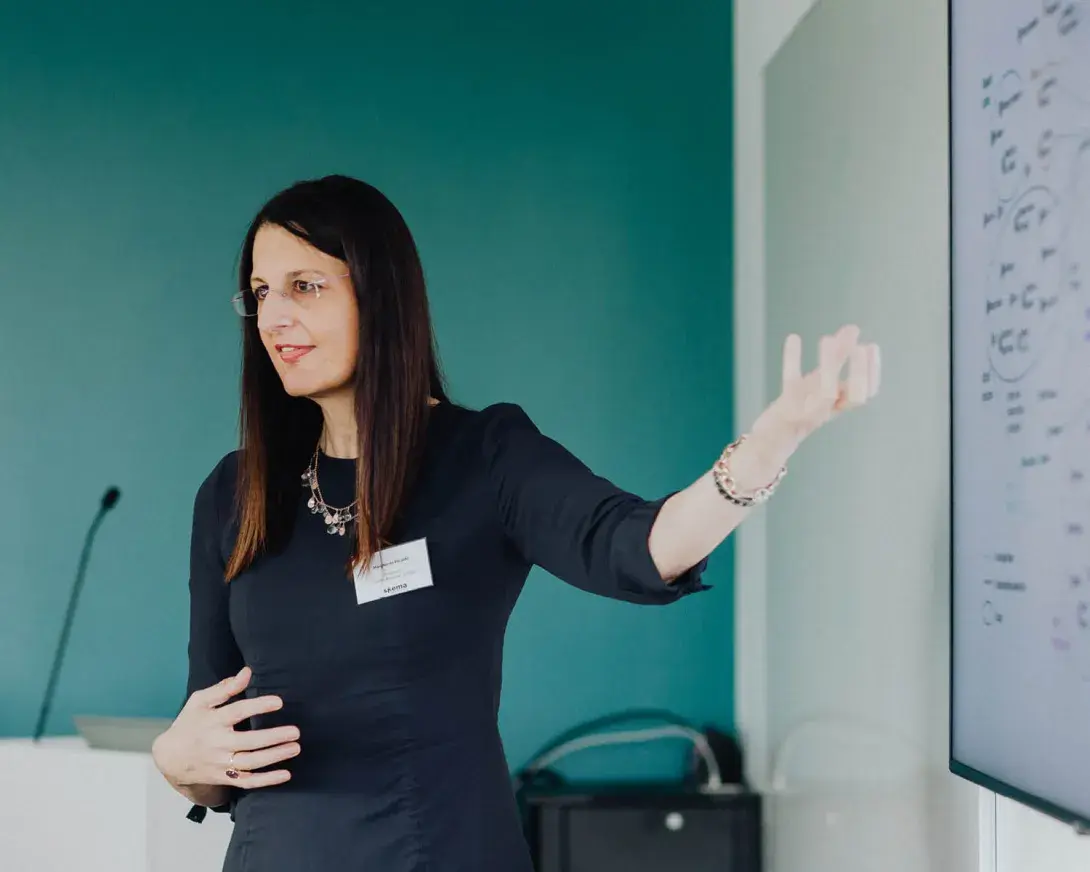SKEMA Centre for Artificial Intelligence
The mission of the SKEMA Centre for Artificial Intelligence is to investigate and guide the economic, societal, and ethical value generated by human-centric AI systems for business


At SKEMA Center for Artificial Intelligence we believe in the transformative power of human-centric AI. Our mission is to explore how AI can drive business innovation, economic growth, and societal progress, creating a future where technology serves humanity in meaningful ways.
Mission
AI WITH PURPOSE
The mission of SKEMA Centre for Artificial Intelligence is to:
- Investigate and guide the economic, societal, and ethical value derived from Human-Centric AI for business.
- Develop and improve AI techniques and algorithms that address business challenges while ensuring their broader applicability and relevance.
An interdisciplinary approach that fosters collaboration among social scientists, AI researchers, and engineers to develop the know-how to explore business opportunities driven by Human-Centric AI.
Research Themes
We explore how AI Systems interact and collaborate with people to enhance human abilities and empower both individual and society creating sustainable value at four different levels:
ALGORITHMIC VALUE
Developing artificiaI intelligence techniques and algorithms with increasingly superior performance.
AI FOR BUSINESS VALUE
How AI becomes part of the products themselves, influences human-computer interactions, and improves business performance.
AI FOR SOCIETAL VALUE
How AI contributes to environmental sustainability and encourages a new social contract based on accountability.
AI FOR ETHICAL VALUE
How to foster explicability and responsible AI to guarantee social fairness in respect of human freedoms and dignity.
Partnership
SKEMA Centre for Artificial Intelligence has established several strategic partnerships to explore the impact of AI across various domains:
Berkeley APEC Study Centre (BASC), University of California, Berkeley
- Focus: Investigating the impact of AI on business, society, and regulations.
Institute for Creativity and AI, City St George’s, University of London
- Focus: Exploring the relationship between AI and creativity.
University LUISS Guido Carli, Rome (Italy)
- Research Centre for Strategic Change "Franco Fontana"
- Research Centre for Artificial Intelligence and Society
This network of partnerships strengthens SKEMA Centre for Artificial Intelligence’s commitment to advancing AI research and its applications in various fields.

Contact us
Our team is at your disposal for any further information you may require.
Faculty and Research Team
faculte.recherche@skema.edu
Copied

























